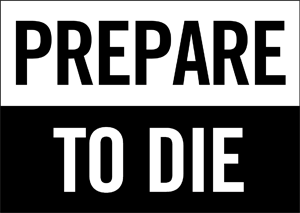When they fetch up in hospital because of an illness or old age, some religious people ask, "Why is this happening to me?" and might add "I've been a good person."
Some have never thought about their mortality. Illness takes them by surprise. They have made no preparation. Illness and death is an affront to them and is outside the order of the world.
For some, what is happening to them is a punishment. They search their lives for some fault or sin that would account for their illness. They might even identify some past misdemeanours.
It makes me sad when I hear people intimate that God is sending their illness to punish them. I am sad that they see God in this light. What an awful burden to bear; how terrifying! I wish I knew how to ameliorate the damage of a lifetime's worth of a certain sort of, usually Christian, teaching. People who teach this are doing terrible harm. It is not a Christianity: it is just the old, merely human, 'eye-for-an-eye' desire for revenge projected onto God. God does not punish us for our sins. Jesus makes that very clear in his story of the (so called) Prodigal Son in Luke's gospel. The father, who stands for God, welcomes the wayward son with open arms and has no need to listen to his plea for forgiveness. Forgiveness is already present.
Of course, illness may be a consequence of how we have lived individually or corporately. Bad eating / smoking / drinking / exercise habits / ...; the build up of resentments / bitterness / loss / anger / sadness / ...; the deplorable way we treat the Earth, our home: all these may be the direct cause of illness. We might well see the way we act towards ourselves and the Earth in these respects as sinful and our illness is the natural result of our lack of care.
A better question then is "What meaning does this illness have for me?" or "What can God teach me?" or "How can I change my life?" God is that in the Universe which has the potential to offer clarity of vision and a new way of living.
Behind all this is terror: we do not know why we get ill and die; we have no final control over mortality, try as we might to combat illness or to find meaning. We have to submit to what cannot be named or questioned and for which we cannot make meaning. It is with this that we have to come to terms.
In the face of this, perhaps any meaning is better than none. Perhaps it is more comforting to belive in a tyrannous God who makes us ill as a punishment, than to accept that life is beyond our understanding and control. Guilt is easier to live with than groundlessness.
























































